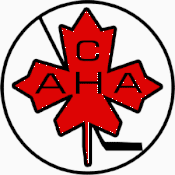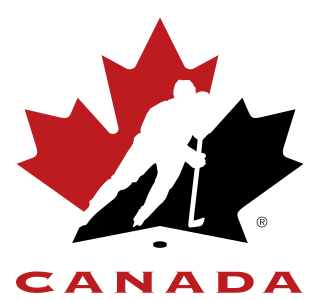
Hockey Canada is the national governing body of ice hockey and ice sledge hockey in Canada. It is a member of the International Ice Hockey Federation and controls the majority of organized ice hockey in Canada. There are some notable exceptions, such as the Canadian Hockey League, U Sports, and Canada's professional hockey clubs; the former two are partnered with Hockey Canada but are not member organizations. Hockey Canada is based in Calgary, with a secondary office in Ottawa and regional centres in Toronto, Winnipeg and Montreal.
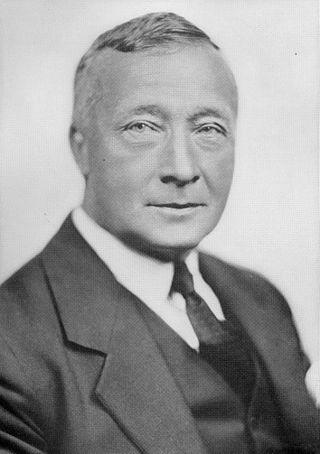
Frank Sellick Calder was a British-born Canadian ice hockey executive, journalist, and athlete.
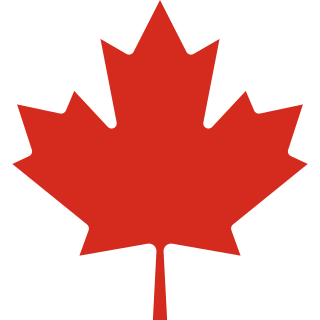
The Canada men's national ice hockey team is the ice hockey team representing Canada internationally. The team is overseen by Hockey Canada, a member of the International Ice Hockey Federation. From 1920 until 1963, Canada's international representation was by senior amateur club teams. Canada's national men's team was founded in 1963 by Father David Bauer as a part of the Canadian Amateur Hockey Association, playing out of the University of British Columbia. The nickname "Team Canada" was first used for the 1972 Summit Series and has been frequently used to refer to both the Canadian national men's and women's teams ever since.
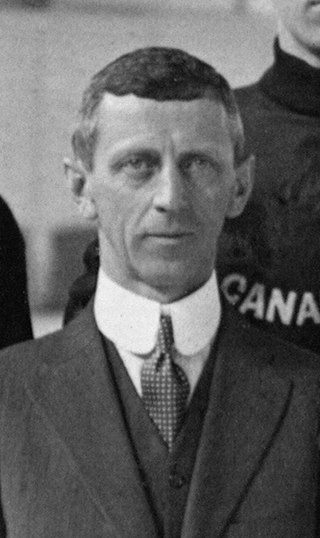
William Abraham Hewitt was a Canadian sports executive and journalist, also widely known as Billy Hewitt. He was secretary of the Ontario Hockey Association (OHA) from 1903 to 1966, and sports editor of the Toronto Daily Star from 1900 to 1931. He promoted the establishment of the Canadian Amateur Hockey Association (CAHA), then served as its secretary-treasurer from 1915 to 1919, registrar from 1921 to 1925, registrar-treasurer from 1925 to 1961, and a trustee of the Allan Cup and Memorial Cup. Hewitt standardized player registrations in Canada, was a committee member to discuss professional-amateur agreements with the National Hockey League, and negotiated working agreements with amateur hockey governing bodies in the United States. He oversaw referees within the OHA, and negotiated common rules of play for amateur and professional leagues as chairman of the CAHA rules committee. After retiring from journalism, he was the managing-director of Maple Leaf Gardens from 1931 to 1948, and chairman of the committee to select the inaugural members of the Hockey Hall of Fame in 1945.

Claude Copeland Robinson was a Canadian ice hockey and sports executive. After winning an intermediate-level championship as captain of the Winnipeg Victorias in 1905, he served as secretary-treasurer and as vice-president of the Victorias. He coached the Victorias to a Manitoba Hockey League championship in 1909, and felt that his team could have competed for the newly established Allan Cup, despite that challenges from senior ice hockey teams were accepted only from Eastern Canada at the time. The Victorias won the Allan Cup by default in 1911, when the Toronto St. Michael's Majors refused to play, then successfully defended four challenges for the trophy.
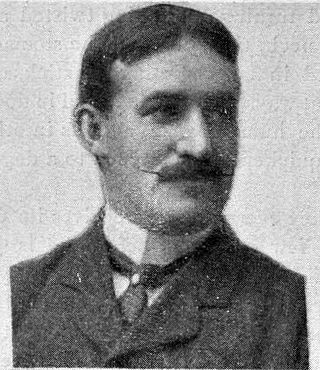
James Thomas Sutherland was a Canadian ice hockey administrator, and founding father of the game in Canada. Sutherland was a pioneer of hockey's early years, helping to develop amateur hockey, and spread the game's popularity throughout the country, and into the United States. He played in the inaugural season of the Ontario Hockey Association, and later coached and refereed the game. He founded the original Kingston Frontenacs, and later became president of the Ontario Hockey Association, and then the Canadian Amateur Hockey Association. He was instrumental in founding the Memorial Cup in 1919, and was at the forefront of the discussion on the origins of hockey.

George Samuel Dudley was a Canadian ice hockey administrator. He joined the Ontario Hockey Association (OHA) executive in 1928, served as its president from 1934 to 1936, and as its treasurer from 1936 to 1960. He was elected to Canadian Amateur Hockey Association (CAHA) executive in 1936, served as its president from 1940 to 1942, as its secretary from 1945 to 1947, and as its secretary-manager from 1947 to 1960. He was secretary of the International Ice Hockey Association from 1945 to 1947, and was later vice-president of the International Ice Hockey Federation (IIHF) from 1957 to 1960. He was expected to become the next president of the IIHF before his death. He graduated from Osgoode Hall Law School in 1917 then practiced law for 43 years as the town solicitor for Midland, Ontario.

Gordon Wainwright Juckes was a Canadian ice hockey administrator. He served as the president and later the executive director of the Canadian Amateur Hockey Association (CAHA), and as a council member of the International Ice Hockey Federation. Juckes became involved in hockey as newspaper publisher and team president, then served as president of the Saskatchewan Amateur Hockey Association. During World War II he was a Major in the Royal Canadian Artillery, and was honoured with the Order of the British Empire.
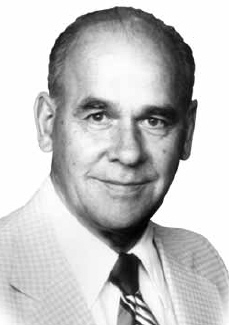
Frederick Page was a Canadian ice hockey administrator and ice hockey referee. He originated from Port Arthur, Ontario, where he played junior ice hockey, refereed locally and later at the Memorial Cup and Allan Cup competitions. He was a league executive in Fort William, then served as president of the Thunder Bay Amateur Hockey Association from 1958 to 1962. He was elected second vice president of the Canadian Amateur Hockey Association (CAHA) in 1962, and rose up the ranks to be its president from 1966 to 1968. Page wanted the CAHA to gain more control over its affairs, and become less dependent on the National Hockey League (NHL). Under his leadership, the NHL ended direct sponsorship of junior hockey teams. He was instrumental in negotiating the revised agreement for the NHL Amateur Draft in 1967, and later served as co-chairman of the resulting joint player development committee.

John Maxwell Roxburgh was a Canadian ice hockey administrator and politician. He organized minor ice hockey in his hometown of Simcoe, Ontario, co-founded the Ontario Juvenile Hockey Association in 1934, and the Ontario Minor Hockey Association in 1940. He served as president of the Ontario Hockey Association from 1950 to 1952, improved its finances to become profitable, and appointed Bill Hanley as a full-time manager to operate the association as a business. Roxburgh served as president of the Canadian Amateur Hockey Association from 1960 to 1962, arranged exhibition games between Canada and the Soviet Union amid an increased rivalry between the respective national teams, and pushed for the separation of politics and sport when the Cold War threatened to cancel the 1962 Ice Hockey World Championships. He was opposed to changes in the Olympic Oath and the international definition of amateurism, and later recommended the formation of a student-athlete team coached by Father David Bauer to become the Canada men's national ice hockey team.
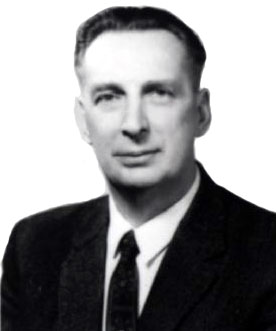
Hanson Taylor Dowell was a Canadian ice hockey administrator and politician. He served as president of the Canadian Amateur Hockey Association from 1945 to 1947, and was the first person from the Maritimes to serve on the national executive. He sought to have the Canadian definition of amateur recognized at the World Championships and the Olympic Games for the benefit of Canada's national team, and negotiated the merger of the International Ice Hockey Association into the Ligue Internationale de Hockey sur Glace. He served as president of the Maritime Amateur Hockey Association from 1936 to 1940, and later as treasurer of the Maritimes and the Nova Scotia Hockey Associations for a combined 30 years.
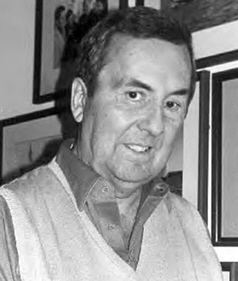
Gordon Ralph Renwick was a Canadian ice hockey administrator, who served as president of the Canadian Amateur Hockey Association (CAHA), vice-president of the International Ice Hockey Federation (IIHF), and was the team president of the Galt Hornets.

William George Hardy was a Canadian professor, writer, and ice hockey administrator. He lectured on the Classics at the University of Alberta from 1922 to 1964, and served as president of the Canadian Authors Association. He was an administrator of Canadian and international ice hockey, and served as president of the Alberta Amateur Hockey Association, the Canadian Amateur Hockey Association (CAHA), the International Ice Hockey Association, and the International Ice Hockey Federation.

Joseph Julius Kryczka was a Canadian ice hockey administrator, coach and referee, and had a legal career as a lawyer and judge, where he was commonly known as "Justice Joe". He graduated from the University of Alberta, and played hockey with the Golden Bears. He practiced law in Calgary for more than 20 years, beginning in 1959 as a lawyer, becoming a judge, and was eventually elevated to a justice on the Court of Queen's Bench of Alberta.

Louis Ernest Lefaive was a Canadian sports administrator and civil servant. He served in multiple executive roles which included, the director of Fitness and Amateur Sport, director of Sport Canada, president of the National Sport Recreation Centre, president of the Canadian Paralympic Committee, chairman and president of Hockey Canada, executive director of the Canadian Figure Skating Association, and executive director of Sport Marketing Canada.
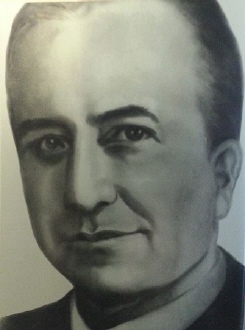
Cecil Charles Duncan was a Canadian ice hockey administrator. He served as president of the Canadian Amateur Hockey Association (CAHA) from 1936 to 1938 and led reforms towards semi-professionalism in ice hockey in Canada. He served as chairman of the CAHA committee which proposed a new definition of amateur to eliminate what it called "shamateurism", in the wake of Canada's struggles in ice hockey at the 1936 Winter Olympics. He negotiated a series of agreements to protect the CAHA's interests, and to develop relationships with all other areas of the world where hockey was played. The agreements allowed the CAHA to become independent of the Amateur Athletic Union of Canada which wanted to keep the old definition of pure amateurism. Duncan's reforms also returned the CAHA to affluence after four years of deficits during the Great Depression and increased player registrations in Canada.

William Franklin Taylor was a Canadian ice hockey administrator. He was the founding president of both the Canadian Amateur Hockey Association (CAHA) and the Manitoba Amateur Hockey Association in 1914, and also served as president of the Winnipeg Amateur Hockey League. He sought for the Allan Cup to be symbollic of the amateur hockey championship of Canada, and to establish a national authority to oversee competition for the trophy. He allied the CAHA with the Amateur Athletic Union of Canada against professionalism and to promote amateur sport and expand hockey in Canada. He supported a desire by the players to govern their own affairs, to standardize ice hockey rules and ice hockey rink dimensions, and recognition of the authority and judgment of on-ice officials. Taylor assisted with patriotic fundraising to contribute to the World War I effort in Canada, and served the community in Winnipeg as a leading member of the Elks and the Shriners. He sat on the board of governors for The Children's Hospital of Winnipeg and the local Children's Aid Society, and was posthumously inducted into the Manitoba Hockey Hall of Fame in 1992.
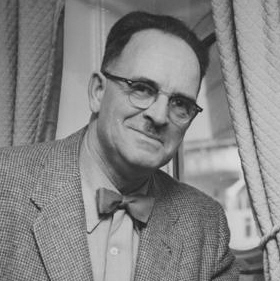
William Bryden George, also known as Baldy George, was a Canadian sports administrator and agriculturalist. He was president of the Canadian Amateur Hockey Association from 1952 to 1955, when Canada debated whether it would withdraw from the Ice Hockey World Championships and the Olympic Games. At issue was the perceived financial exploitation of the Canada men's national ice hockey team and abuse from European media on the Canadian style of physical play. He wanted a financial guarantee for the national team when it travelled since its participation increased attendance at events in Europe. Canada did not participate at the World Championships in 1953 and placed second in 1954, which led to heavy criticism by media in Canada for the failure to win. Although Canada won the 1955 Ice Hockey World Championships, George questioned future participation and was concerned that the game in Europe took on political and religious meanings in which Canada did not want to become involved.
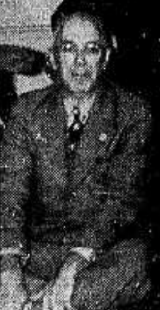
Harry John Sterling was a Canadian ice hockey administrator. He was elected president of the Canadian Amateur Hockey Association (CAHA) in 1920, after serving as an Ontario Hockey Association executive and as president of the Thunder Bay Amateur Hockey Association. He declared that the CAHA would not tolerate the hockey "tourist" after becoming suspicious of players who changed their addresses to be on a new team. His investigation into registrations led to the suspension of a team from Saskatoon when it was discovered that players who won the gold medal representing Canada in ice hockey at the 1920 Summer Olympics were being paid for amateur hockey. His term as president resulted in the CAHA enacting stricter rules for registration and co-operation with the Amateur Athletic Union of Canada to investigate into all Canadian hockey players to maintain amateurism.

Frederick Paul Henry Marples was a Canadian sports executive in ice hockey and athletics. He was president of the Winnipeg Monarchs team which won Winnipeg Amateur Hockey League championships in 1914 and 1915, and the Allan Cup as senior ice hockey champions of Canada. His operation of a reserve team to support the Monarchs led to debates on player eligibility for the Allan Cup and calls for a national governing body of hockey. As the secretary-treasurer of the Winnipeg Amateur Hockey League, he helped establish both the Manitoba Amateur Hockey Association (MAHA) and the Canadian Amateur Hockey Association (CAHA) in 1914; then served as secretary-treasurer of the MAHA from 1914 to until 1934, and as secretary of the CAHA from 1926 to 1945. He sought to grow the game in rural regions of Manitoba, promote minor ice hockey as a source of future senior players, to keep players in junior ice hockey until age 21, and was against the exodus of amateur players to professional teams.
